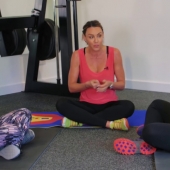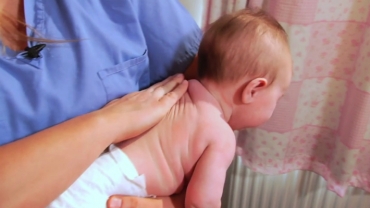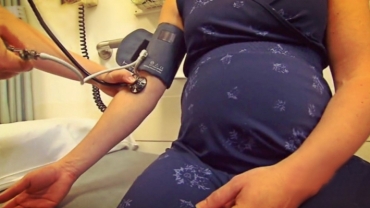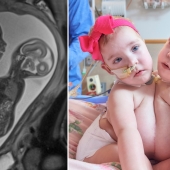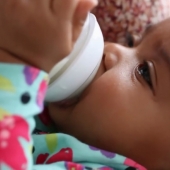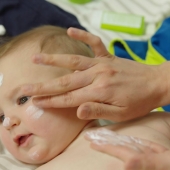A fever is cause for concern especially in young infants. So if you think your baby feels hot or seems to be sick take his temperature. You'll get the most accurate reading with the digital rectal thermometer.
First clean the thermometer with rubbing alcohol, or soap and warm water. Allow it to set for a few minutes at room temperature, then coat the tip with a dab of petroleum jelly. To take his temperature, you can place your baby on his back as if you were about to change his diaper, or on his belly across your lap with his legs dangling. Laying down your side.
Turn the thermometer on and gently insert the tip about three quarters of an inch. Wait for it to beep before removing it. See your doctor immediately if your baby is younger than three months and has a temperature above a hundred point three degrees.
If he's older than three months, give your pediatrician a call if his temp is higher than a hundred. Two degrees, or if any fever lasts more than a day. Also let her know if your baby has other concerning symptoms, such as a change in appetite, a new rash or a decrease in activity. Even if his body temperature is only slightly above normal. Until your baby's temp comes down, focus on making him.
Let him rest and watch him closely for any changes in behavior. Only give him acetaminophen or ibuprofen if your doctor recommends it. To ensure your baby gets the full dose of medication, even if his stomach is upset, try a suppository, such as Infant Strength.
Acetaminophen suppositories. It's important to keep your baby hydrated too. So offer him extra formula or breast milk. The bump in liquids will also help clear toxins from his body and deliver the nutrients he needs. If your baby has had a dry diaper for eight hours or is crying without tears see a doctor. He may be dehydrated.
- 800 views


